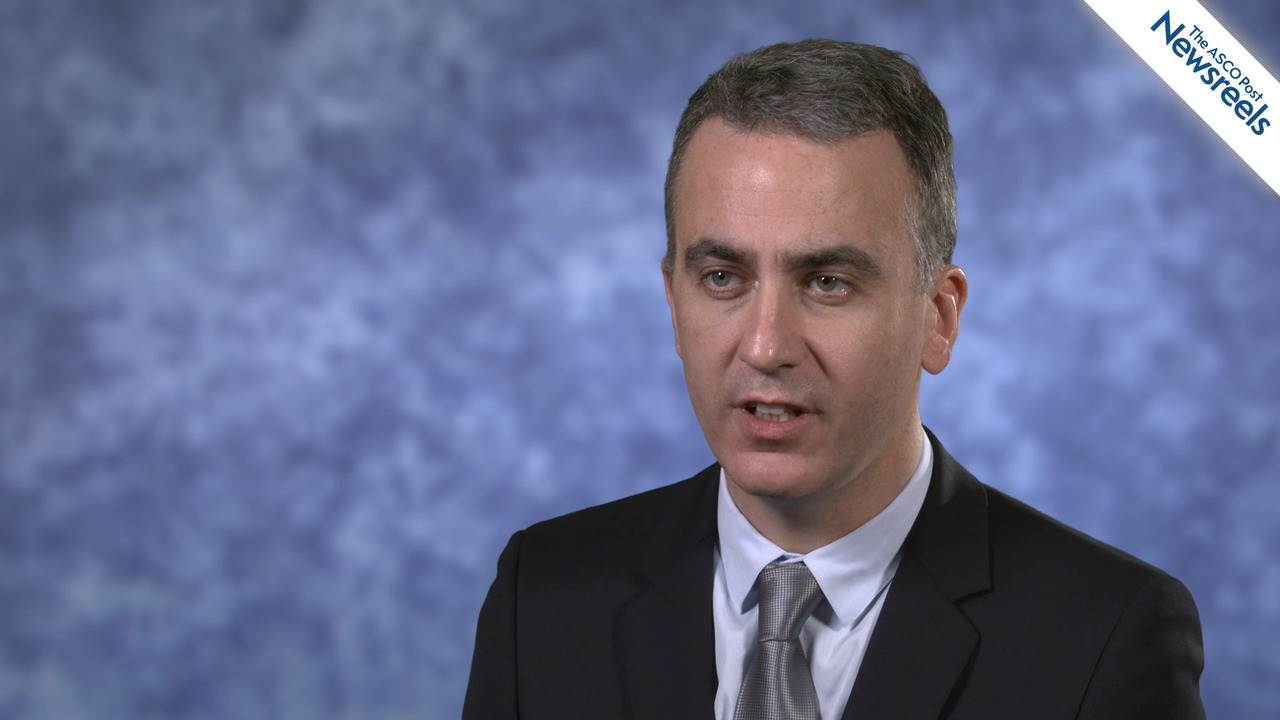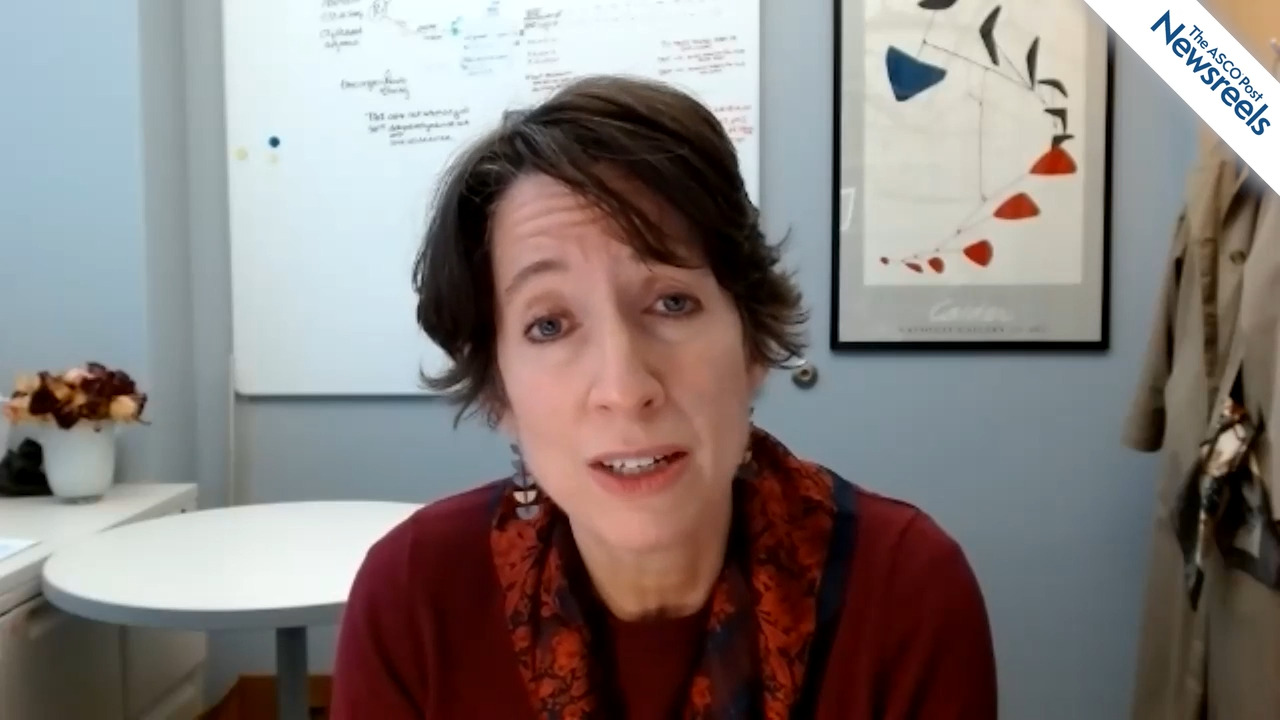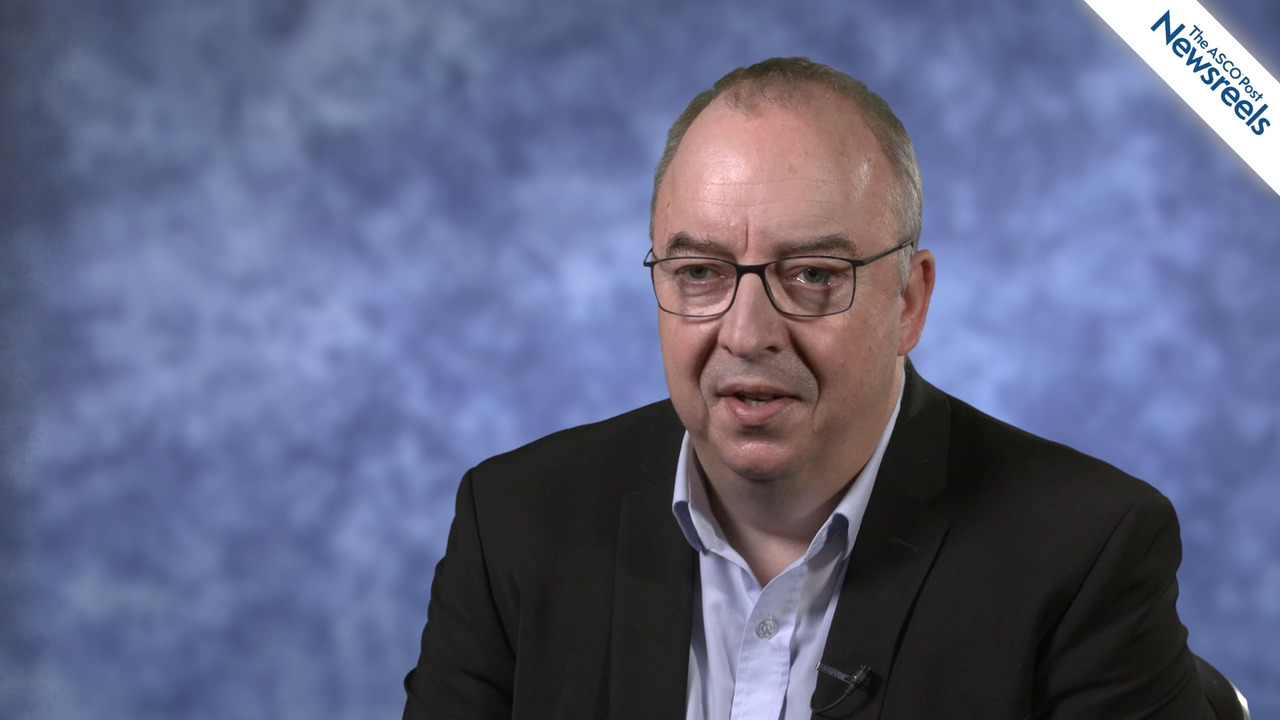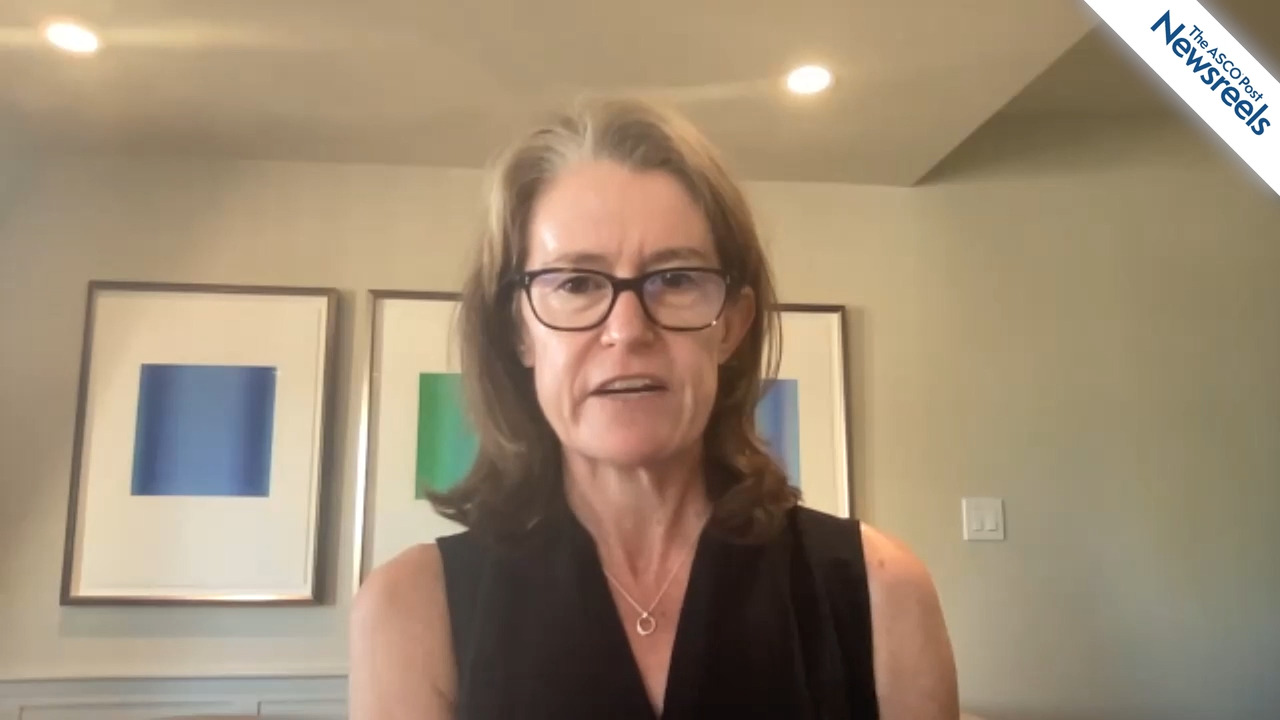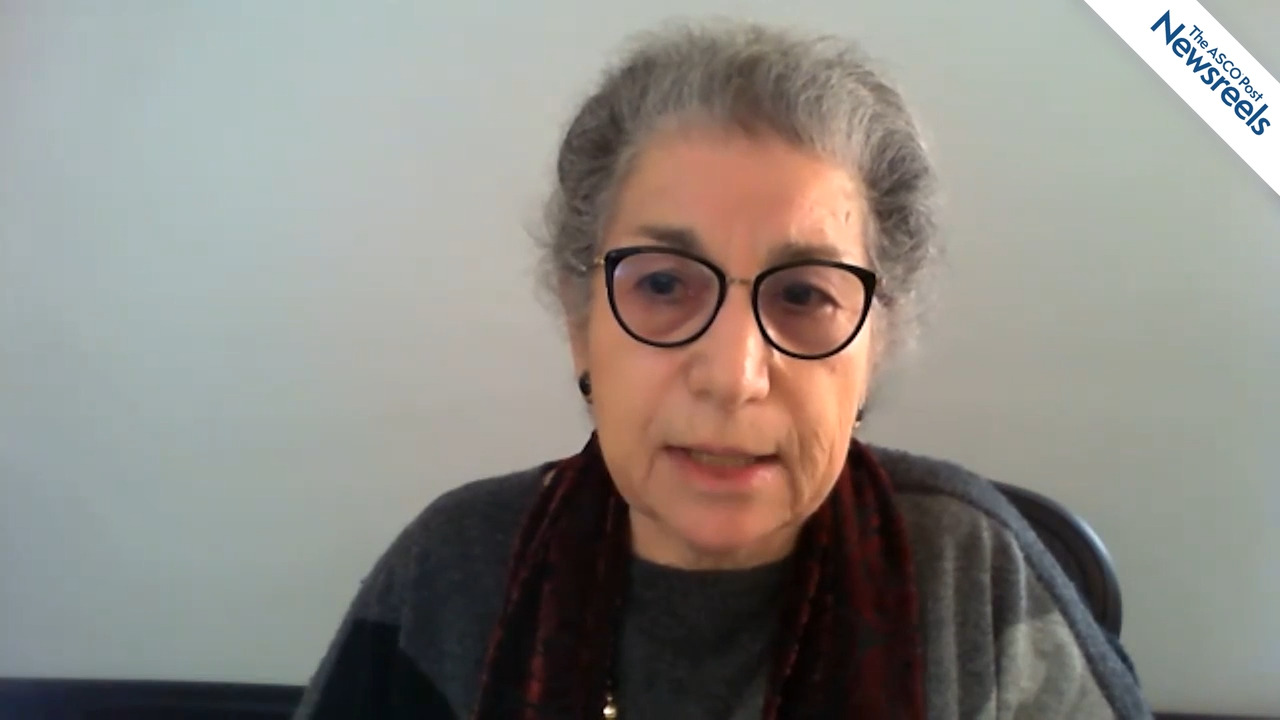Ann H. Partridge, MD, MPH, on SABCS Meeting Highlights: Expert Perspective
2021 San Antonio Breast Cancer Symposium
Ann H. Partridge, MD, MPH, of Dana-Farber Cancer Institute, discusses what she considers to be the most notable presentations at the 2021 San Antonio Breast Cancer Symposium. They include the focus on early-stage disease, especially in the TEXT/SOFT, RxPonder, and KEYNOTE-522 trials, as well as abstracts from the Early Breast Cancer Trialists’ Collaborative Group; and new data and novel therapeutics in the advanced setting.
The ASCO Post Staff
François-Clément Bidard, MD, PhD, of the Institut Curie, discusses phase III findings of the PADA-1 study, which showed that optimizing endocrine therapy after detecting the ESR1 mutation in patients with hormone receptor–positive, HER2-negative metastatic breast cancer may double their median progression-free survival (Abstract GS3-05).
The ASCO Post Staff
Meredith M. Regan, ScD, of Dana-Farber Cancer Institute, discusses findings that point to the potential benefits of using adjuvant exemestane plus ovarian function suppression (OFS) to treat premenopausal women with hormone receptor–positive early breast cancer. This conclusion came after 13 years of median follow-up on the TEXT and SOFT trials, during which this regimen was compared with tamoxifen and OFS (Abstract GS2-05).
The ASCO Post Staff
Michael Gnant, MD, of the Medical University of Vienna, discusses phase III findings from the PALLAS study, which showed that adding 2 years of palbociclib to ongoing adjuvant endocrine therapy did not improve survival for patients with stage II to III hormone receptor–positive, HER2-negative early breast cancer. Dr. Gnant also talks about whether any correlative studies hint at patient subgroups that this regimen may benefit (Abstract GS1-07) .
The ASCO Post Staff
Elizabeth A. Mittendorf, MD, PhD, of Dana-Farber Brigham and Women’s Cancer Center, discusses the progress made in recent years treating patients with triple-negative breast cancer (TNBC), including approval of the immunotherapy agents pembrolizumab and sacituzumab govitecan-hziy, a new standard of care in the preoperative setting for early-stage disease, as well as a better understanding of the biology of TNBC and its heterogeneity.
The ASCO Post Staff
Patricia A. Ganz, MD, of the University of California, Los Angeles, discusses quality-of-life results from the phase III OlympiA study of adjuvant olaparib after (neo)adjuvant chemotherapy in patients with germline BRCA1/2 mutations and high-risk HER2-negative early breast cancer (Abstract GS4-09).
